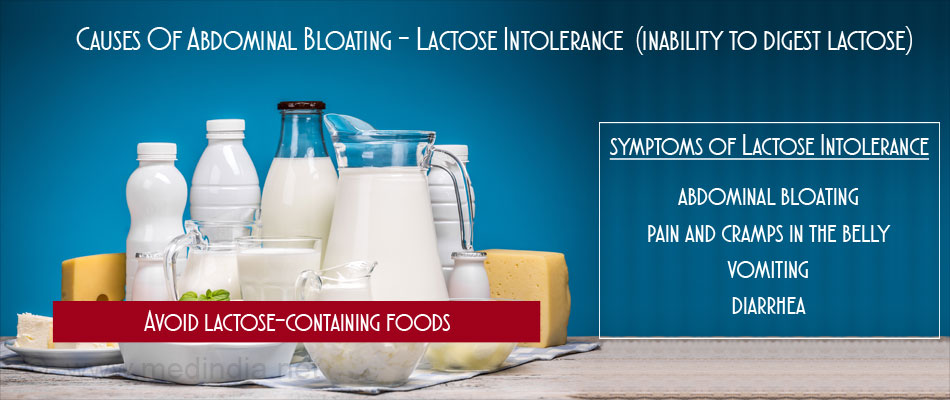- Cecil Medicine, 23rd Ed.
- The Merck Manual, 18th Ed.
About
Lactose intolerance is the inability to digest lactose, the sugar in milk. This leads to gastrointestinal symptoms (diarrhoea, abdominal cramps) when milk or milk products are consumed.
The condition arises due to a defect in the digestive enzyme called lactase. Children with lactose intolerance have diarrhea and may not gain weight. In adults the symptoms include abdominal bloating, cramps, diarrhea, flatulence, nausea, audible bowel sounds (borborygmi) and an urgent need to have a bowel movement. Diagnosis is based on symptoms. Avoiding lactose and supplementing lactase enzymes are the usual treatments.

75% of the world’s population is estimated to suffer the deficiency. Prevalence is higher prevalence among Asian, African, and South American persons.
Males and females are equally affected by lactose intolerance. Among adults, the age of presentation of intolerance is 20-40 years.
About 44% of the women with lactose intolerance regain the ability to digest lactose during pregnancy. The condition is associated with very little morbidity.













